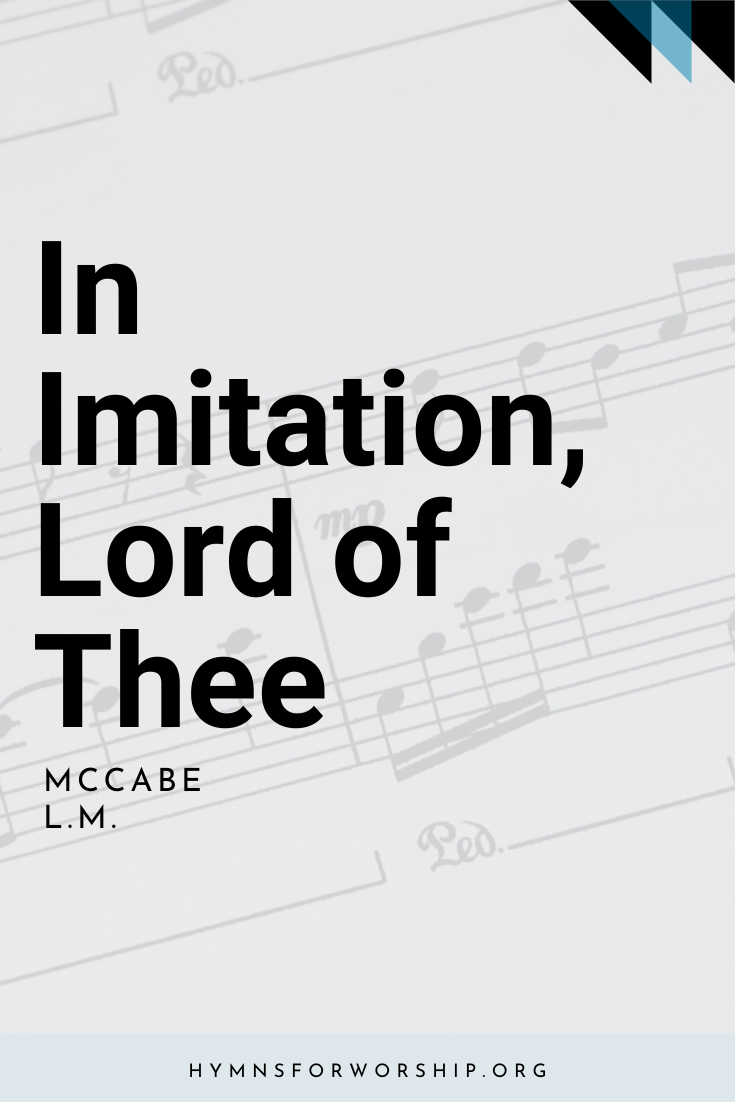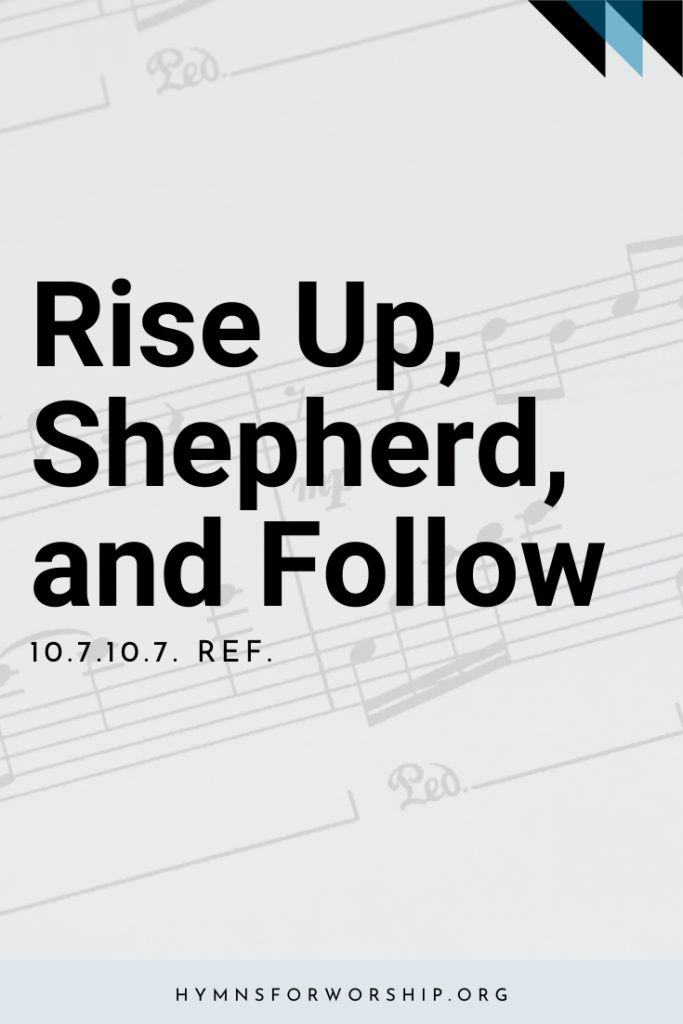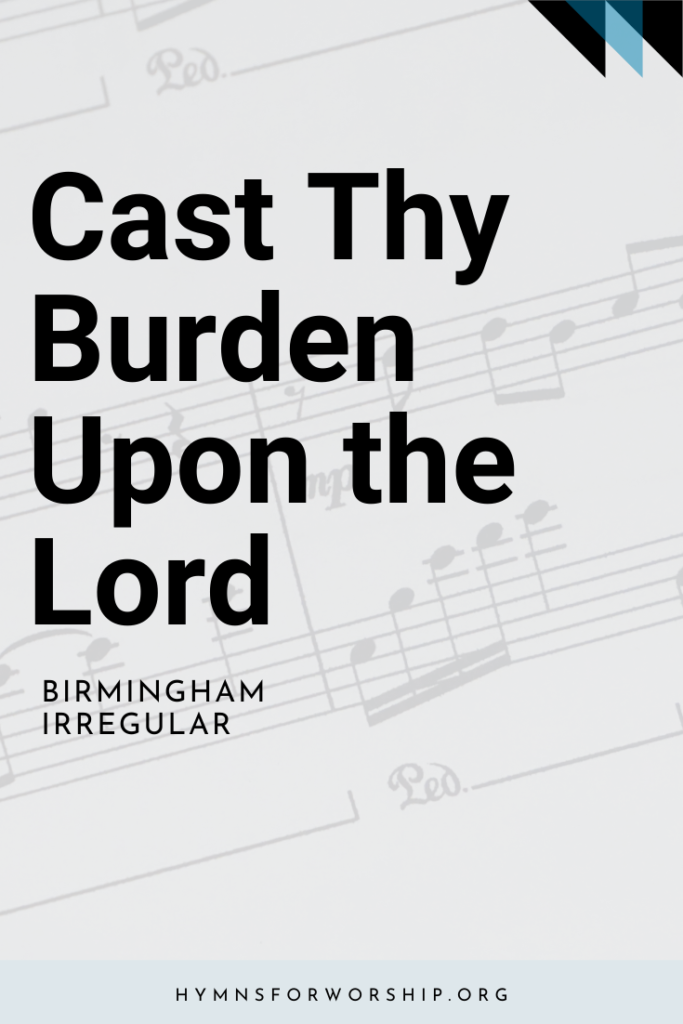DOCTRINES >> COMMUNION
SDAH 401
In imitation, Lord, of Thee,
This solemn service we repeat;
For Thine example full of grace,
Has made this humble duty sweet.
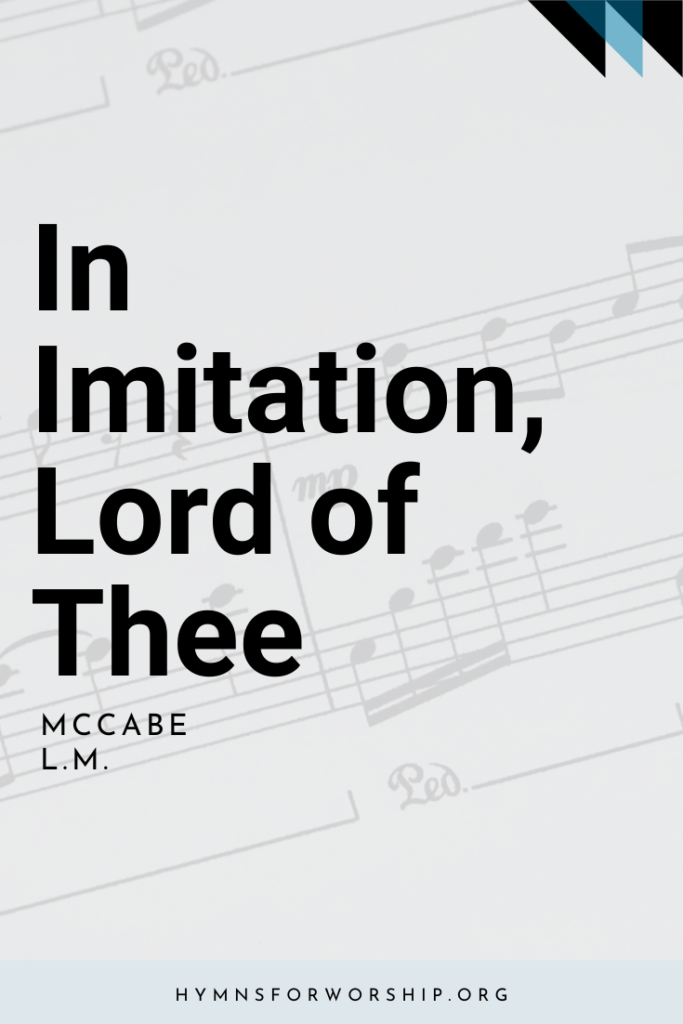

Text
1
In imitation, Lord, of Thee,
This solemn service we repeat;
For Thine example full of grace,
Has made this humble duty sweet.
2
Renew each sacred spark of love,
And vitalize the holy flame;
May union strong our hearts unite
While this we do in Jesus’ name.
3
Our great example Thou shalt be,
In washing Thy disciples feet;
And as we follow Thy command,
Make Thou our fellowship complete.

Hymn Info
Biblical Reference
(a) John 13:15 (b) John 17:21 (c) John 13:14
Author
William Brickey
Year Published
c. 1886
Hymn Tune
MCCABE
Metrical Number
L.M.
Composer
E.S. Widdemer
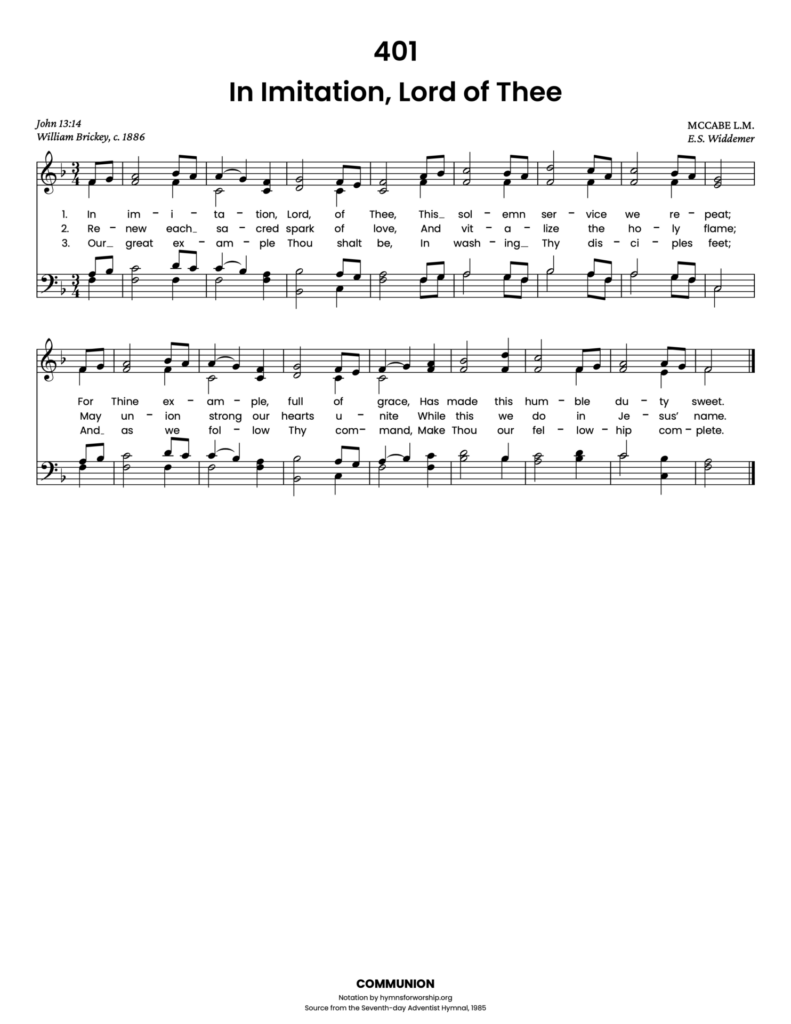

Get the hymn sheet in other keys here
Notes
Make each hymn more meaningful with these helpful tools: Short, ready-to-use hymn introductions for church bulletins, multiple ways to introduce a hymn based on your worship theme and in-depth history and insights to enrich your song service.

